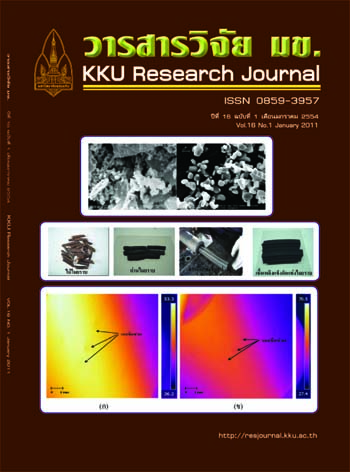The development of a Learning management model emphasizing analytical thinking in the science learning area
Main Article Content
Abstract
The objectives of this research were: 1) to study the current situation and needs in a learning management system for developing the analytical thinking of teachers in the Science Learning Area, 2) to develop a Learning Management Model emphasizing analytical thinking in the Science Learning Area, 3) to develop teachers in learning management emphasizing analytical thinking and evaluation of development, 4) to study the effectiveness of the model by studying the students’ analytical thinking. The research design of this study was Research and Development. There were 4 phases to this research: Phase 1: a study of the context, current situation and need for learning management in developing analytical thinking. Phase 2: the development of learning management model emphasizing analytical thinking in the Science Learning Area. Phase 3: the development of teachers in learning management emphasizing analytical thinking and evaluation of development. Phase 4: the evaluation of the model’s effectiveness by studying students’ analytical thinking.
Results of the study are as follows: 1) The current situation of teachers’ overall learning management emphasizing students’ analytical thinking, was at the “Moderate” level. Teachers’ overall need for learning management in developing analytical thinking was at the “Highest” level. 2) The learning management model focusing on analytical thinking in the Science Learning Area consisted of 5 components: rationale, objective, learning area, instructional steps, and measurement and evaluation. The instructional steps included orientation, presentation of learning task, practice of analytical thinking individually as well as in small groups, presentation and discussion of ideas, and conclusion. 3) The effect of teacher development in learning management emphasizing analytical thinking was that: (1) the trained teachers, had their posttest average score of analytical thinking for 35.09, or 77.98% which was higher than the speci ed criterion of 70%, (2) 47 trained teachers, or 64.38%, were able to establish a learning management plan focusing on analytical thinking, and had quality at the “Very Good” level, and 26 teachers, or 35.62%, at the “Good” level. 4) The effect of model effectiveness evaluation was that the students had a posttest average score in analytical thinking at 76.49%, which was higher than the speci ed criterion of 70%. Students had overall satisfaction in learning by using the learning model emphasizing analytical thinking in the Science Learning Area at the “Highest” level.


